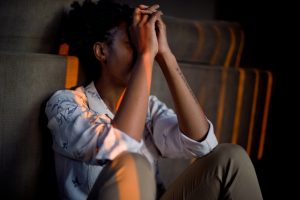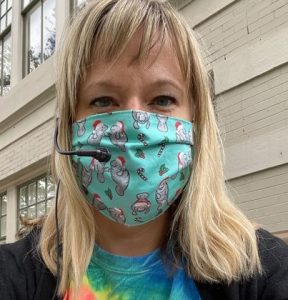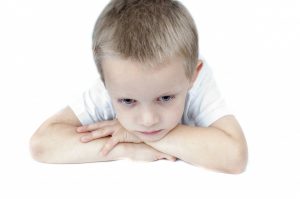 I am sitting in my car at my son’s football practice. I have been looking forward to this moment all day. There’s no one in the car with me. I am finally alone. I put on the Crime Junkie podcast, recline the driver’s seat, open the window to let in the fall breeze, and begin to grade stacks of papers. This has become therapy.
I am sitting in my car at my son’s football practice. I have been looking forward to this moment all day. There’s no one in the car with me. I am finally alone. I put on the Crime Junkie podcast, recline the driver’s seat, open the window to let in the fall breeze, and begin to grade stacks of papers. This has become therapy.
As bizarre and challenging as 2020 was, I never looked forward to sitting in my car alone for an hour. 2021 is harder than 2020 because the old expectations and stressors of pre-pandemic times have returned, but we’re all still reeling from the traumas of this year and last. Covid-19, Hurricane Zeta, and Ida are just some of the traumatic events that have jolted New Orleanians over the past two years. These disasters also occurred during the continued fallout of a contentious presidential election and nationwide protests against racial injustice and a demand for change.
 In other words: we’re tired. We need time and space to heal, decompress, and process what we’ve been through, and continue to go through, but the return to a more “normal” way of life threatens that. Actively trying to find time for the reflection and restoration we all need often takes a Herculean effort. In many cases, it’s just easier to push on, because putting the brakes on is just too hard.
In other words: we’re tired. We need time and space to heal, decompress, and process what we’ve been through, and continue to go through, but the return to a more “normal” way of life threatens that. Actively trying to find time for the reflection and restoration we all need often takes a Herculean effort. In many cases, it’s just easier to push on, because putting the brakes on is just too hard.

As a public school teacher, I am seeing the above scenario playing out with myself and fellow educators, parents, and also my students. Teachers are still recovering from the turbulent 2020 school year while still struggling through 2021. At New Orleans public schools, we still wear masks, and like last year, I still wear a headset so my students can hear me through the mask. Students are quarantined for a week or more at a time, sometimes entire classes. While teachers are no longer being asked to concurrently teach (virtual and in-person simultaneously), we’re facing new pressure from the state, districts, parents, and each other. The state is not excusing school closures due to Hurricane Ida, so we’ve lost (and are losing) much-needed vacation days. Our districts and administrations are telling us it’s time to re-focus on data-driven instruction and pushing students forward so we can overcome gaps created by the pandemic and hurricanes. Parents are requesting conferences out of concern for their child’s academic or emotional well-being and still expecting materials to be posted online when their child is sick. All of these groups are expecting us to be the miracle workers society has always needed us to be, but now we’re expected to make miracles happen while managing more than ever before. Needless to say, we are increasingly frustrated with our jobs, struggling to navigate impossible workloads and low pay. Teacher shortages are plaguing the nation. We are also impatient with each other — more and more of us are late to work, increasingly absent (if we manage to find a sub), and behind on assignments due to struggling with the above. Just writing about it is exhausting.
 With students, I see children who are coping with the interruption of school in their formative years. The youngest (elementary age) kids are often unable to verbalize or identify that struggle. But they all feel it. Now that the “normal” pace of school life has returned, with homework, testing, and extracurriculars that mostly fell by the wayside last year, they too are struggling to find the time and space needed to heal. Anxiety, tantrums, aggressive behaviors, unkind social interactions, or a withdrawal from others are some of the ways this stress is manifesting itself in students.
With students, I see children who are coping with the interruption of school in their formative years. The youngest (elementary age) kids are often unable to verbalize or identify that struggle. But they all feel it. Now that the “normal” pace of school life has returned, with homework, testing, and extracurriculars that mostly fell by the wayside last year, they too are struggling to find the time and space needed to heal. Anxiety, tantrums, aggressive behaviors, unkind social interactions, or a withdrawal from others are some of the ways this stress is manifesting itself in students.
As parents, we see this happening with our children, and we are rightfully concerned. At the same time, we are also recovering from trauma, exhausted from having our fight or flight responses constantly kicked on by ongoing ordeals and the decision fatigue that goes along with them. Many of us parents are still arguing with insurance to pay for our Ida-damaged roofs months later, and if we miraculously receive funds, we now need to find a reliable, affordable roofer to do the job. Others are desperately trying to qualify for disaster food stamps, waiting on the phone for hours at a time, and are struggling to buy groceries due to the delays. Those of us with children ages 5-11 now also need to figure out when, where, or if to get our newly eligible children vaccinated against Covid 19.
At the same time, we are worried about our kids, we are elated that many of their “normal” extracurriculars have returned, and are more than a little eager for our kids to be with friends, getting exercise away from a computer screen. So we “overbook” their schedules and ours without realizing it, because there’s just so much to make up for. In my family’s case, we were so excited our son could play football (middle school sports were canceled last year), that we committed to driving him to practice fields all over the city since his school’s field is being resurfaced. Which means we’re getting home later than we’d like, doing homework later, eating dinner later, sleeping less. Yes, it’s only for a few months, and the season is almost over, but I know most of us that are struggling with this, at different schools, with different children, doing different activities — some of us all year.
And while we were used to doing the after-school busyness routine pre-Covid, attempting to make it work during the last dregs of a pandemic (while still recovering from said pandemic) AND after a major hurricane, feels very different, to say the least. Our lives have gone from zero (lockdown) back to full blast (“normalcy”) without stopping to reassess the damage and pace ourselves along the way.
So what is the solution? Obviously putting the brakes on everything so we can all reflect and recover isn’t ideal or optional. But we all need to find a way to put the brakes on things in our lives in a regular way. Sitting in the car by yourself for an hour (even if it means grading papers) a few times a week could be one solution. Regular exercise promotes mental clarity and “time away.” Happy hours with friends, reading a book, family movie or board game night, a day off from work, an extended walk with the dogs, meditating, or playing a video game– we all decompress differently, but we all desperately need to decompress.
reflect and recover isn’t ideal or optional. But we all need to find a way to put the brakes on things in our lives in a regular way. Sitting in the car by yourself for an hour (even if it means grading papers) a few times a week could be one solution. Regular exercise promotes mental clarity and “time away.” Happy hours with friends, reading a book, family movie or board game night, a day off from work, an extended walk with the dogs, meditating, or playing a video game– we all decompress differently, but we all desperately need to decompress.
If all of us commit to creating (and allowing) more “time away,” we will begin to reap immediate results — less stress, anxiety, anger, and behavior issues among children and adults. If we continue to push forward without pause and continue to make the act of trying to pause SO hard, a much bigger consequence may be in store: a pandemic of continually exhausted, traumatized beings. We owe it to ourselves to do better, to be better at slowing down. The good news is, it’s never too soon or too late to start. So what will your “time away” look like today?
















